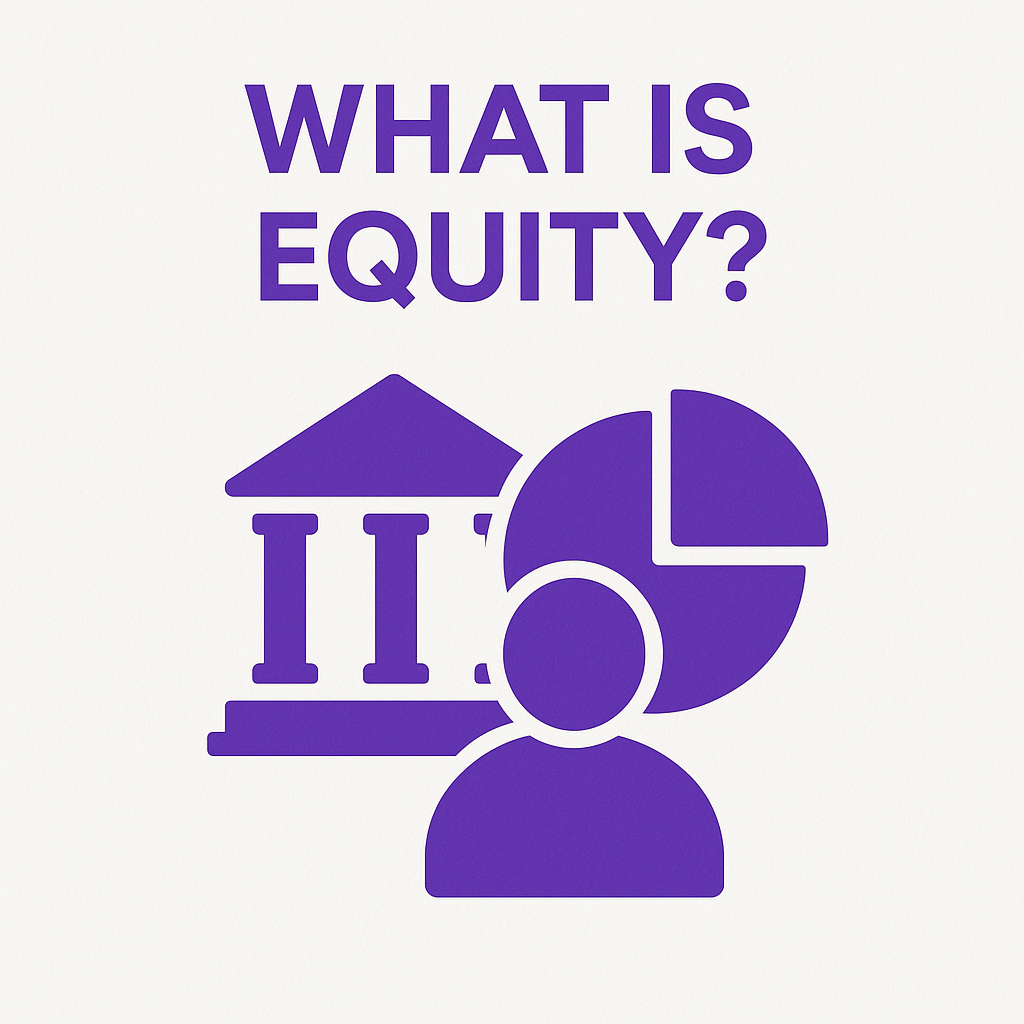🧭 What Is Startup Equity?
Startup equity represents ownership in a company. When you hold equity, you literally own a piece of the business — reflected as shares or stock options.
For startups, equity is the currency of trust and collaboration. It’s how founders, investors, and employees share both the risks and the rewards of building something new.
💡 Why Equity Matters in Startups
When startups are young, cash is limited. To attract top talent or investors, they often offer equity as compensation. This allows everyone involved to benefit when the company grows or exits (through acquisition or IPO).
In simple terms:
“Equity aligns everyone’s success with the company’s success.”
🧩 Who Gets Startup Equity?
| Stakeholder | Typical Reason for Equity | Common Range |
|---|---|---|
| Founders | Original creators of the company | 40%–80% combined |
| Investors | Provide funding to grow the startup | 10%–30% total |
| Employees | Rewarded for long-term contribution | 5%–15% pool |
| Advisors/Mentors | Offer strategic guidance or networks | 0.1%–2% |
| Early Partners | Provide services or technology | Varies |
Each stakeholder’s equity stake may change over time due to new funding rounds, option exercises, or dilution.
⚙️ How Startup Equity Works
-
Founding Stage:
Founders split ownership among themselves — often based on contribution, idea, risk, and role. -
Funding Stage:
When investors inject capital, new shares are issued. This causes dilution — everyone’s percentage reduces slightly, but the company’s valuation increases. -
Growth Stage:
Employees are given stock options through an ESOP (Employee Stock Ownership Plan). These options vest over time, ensuring loyalty and performance. -
Exit Stage:
During an acquisition or IPO, equity converts into real money depending on share price or deal value.
🔐 Understanding Vesting and Cliff
| Term | Meaning | Example |
|---|---|---|
| Vesting | Earning ownership gradually over time | 4-year vesting = 25% each year |
| Cliff | Minimum period before any shares vest | 1-year cliff means nothing before 12 months |
| Fully Vested | All shares earned and owned | After 4 years, 100% owned |
Example:
If an employee has 1,000 shares under a 4-year vesting with a 1-year cliff — after one year they earn 250 shares, and the rest vest monthly or quarterly over the next three years.
📈 Example: How Equity Translates to Value
| Scenario | Share Count | Company Valuation | Value of Equity |
|---|---|---|---|
| Early stage | 1,000 shares | ₹1 crore | ₹10,000 |
| Series A | 1,000 shares | ₹10 crore | ₹1,00,000 |
| IPO | 1,000 shares | ₹100 crore | ₹10,00,000 |
This demonstrates how holding equity early can turn into life-changing wealth if the company scales successfully.
⚖️ Startup Equity vs. Salary
While salary provides immediate security, equity offers future potential.
| Comparison | Salary | Equity |
|---|---|---|
| Type | Fixed, recurring | Variable, long-term |
| Risk | Low | High |
| Reward | Stable income | High upside |
| Best For | Short-term needs | Long-term visionaries |
A balanced approach — moderate salary + meaningful equity — is often the most sustainable.
💬 Common Questions
1. Can I sell my equity anytime?
Usually not. Startup shares are illiquid until a liquidity event like funding, acquisition, or IPO.
2. What happens if I leave before vesting?
You typically lose unvested shares. Only vested shares remain yours.
3. Is equity taxable?
Yes, depending on your country’s tax laws. Equity may be taxed when granted, exercised, or sold.
🚀 Why Understanding Equity Matters
Equity is more than numbers — it’s the foundation of ownership, motivation, and trust in startups. Whether you’re a founder negotiating your first cap table or an employee evaluating a job offer, understanding how equity works helps you make smarter decisions for your future.
🧭 Final Thoughts
Startup equity transforms contributors into co-owners.
It’s a powerful tool — when managed fairly — that rewards belief, risk, and perseverance.
So before joining a startup or raising capital, always ask:
“What’s my real share in the dream I’m building?”
Found this helpful? Share it with your network


